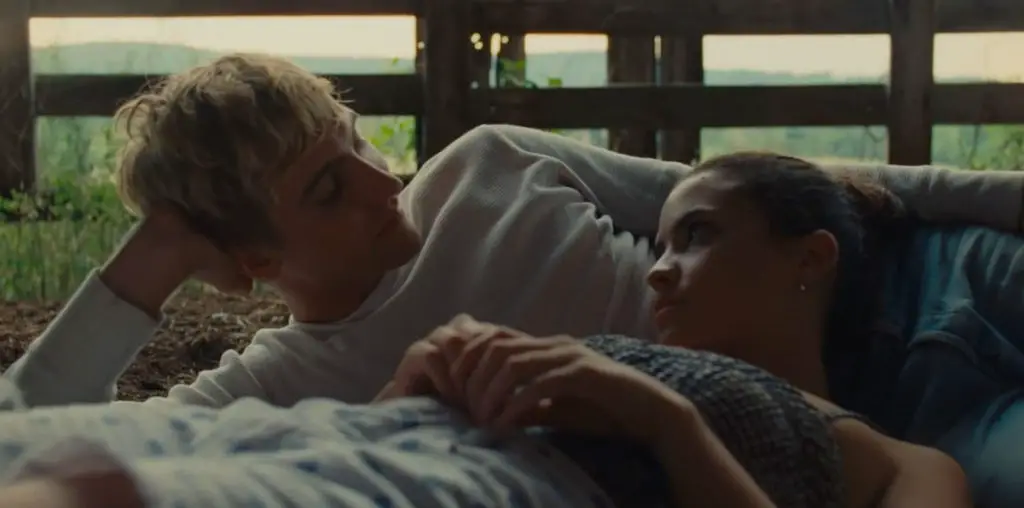
How should we respond to a rapist who proves impotent mid-act? Should we chuckle at his failed act of violence? Should the victim strike back with laughter in his face, hoping that the wound to his manhood will stop his hand from rising at her?
The moment is central in a new western, Good for Nothing, and if anything, genre inspires our response. Fans of Clint Eastwood’s The Unforgiven know what can befall a girl’s fate should she laugh at a westerner’s lacking member. Hence, the victimized Isabella’s (Inge Rademeyer) brief look of disbelief, which returns to panic soon after, suggests as much as it delivers.
A young Victorian lady coming to her uncle’s New Zealand ranch, Isabella is kidnapped at a bar by an unnamed outlaw (Cohen Holloway), who aims and fires a six-gun way better than, we soon learn, he can himself. Taking Isabella over his shoulder, he soon pins her down, hillside, for a vulgar display of domination that proves a weakness. Not able to restrain her through sexual violence, he ties her down so he can visit a doctor (and later others), who suggests he lay off the whiskey.
An obvious ironic take on the badass man of action, the outlaw soon finds Isabella at the local jail to get help. The sheriff proves just as base – and ready to complete the act the outlaw couldn’t. The outlaw arrives during the second attempted rape of Isabella (another appears later on), to shoot down the perpetrator and all else in the jail. A dying prisoner marks the girl (wrongfully, as a prostitute) and the guy with her, and a posse assembles to avenge the dead. With man and captive now in flight, we question – with a queasy sense – whether the narrative will take them down a romantic path. In our post-soap opera world, are rapists potential lovers, even in melodrama?
Taking the western to glorious landscapes of New Zealand, Good for Nothing has an admirable spirit, even if its goals in genre treatment are puzzling. Though writer-director Mike Wallis wants us to abandon moral judgment of the outlaw, the film’s use of romance comes too close to the classical western, where the element works toward moral redemption. Sure, we’ve had plenty renegades in the man-of-action role, especially once Sam Peckinpah expanded the figure into a gang, thus reworking Kurosawa’s posse of Ronin. They appeared to thrash at the monumental, classical ideal borne from John Ford and George Stevens’ Shane. But a renegade man of action in romantic mold is torn between classicism and early revisionism. He’s transplanted to the land of screwball comedy, in spite of subtle use of humor by the obviously talented Wallis.
In a film working off tradition, Good for Nothing moves to uncertain genre territory. It doesn’t rough it so well.
